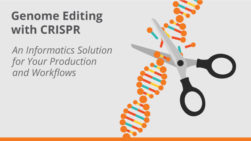Source of article The Jury Room - Keene Trial Consulting.
 Last year, we posted several times on CRISPR (the revolutionary gene-editing tool) as an example of how to explain something very complex to the novice juror. We’ve also talked a lot about how expert witnesses are not present in the courtroom to show jurors and parties how smart they are—but rather, to educate the jurors.
Last year, we posted several times on CRISPR (the revolutionary gene-editing tool) as an example of how to explain something very complex to the novice juror. We’ve also talked a lot about how expert witnesses are not present in the courtroom to show jurors and parties how smart they are—but rather, to educate the jurors.
When we say we want expert witnesses to teach at the high school level—we often get confusion from experts as to how this can possibly be done. Typically, the expertise of an expert technical witness is in a specific area and it is hard to imagine how to speak at various levels without being condescending. Sometimes they even say they “know how” to talk to people and recommendations to them are unnecessary. Having seen a good many expert witnesses, we would beg their indulgence (and often do) for just a few minutes. And that few minutes begins with a brief video recording of them responding to a cross-examination. Review of the video often softens their insistence that they are ready to go.
WIRED has done a terrific videos on just how to explain and educate across different levels of education and information. Here’s one where a biologist explains CRISPR to a child, a teen, a college student, a graduate student, and a gene editing professional. This video is a terrific example of why we want you to communicate at the high school level. This expert communicates respectfully and in a way that encourages the various people in the video with him to rise to their highest level of performance. They all seem to leave happy and feeling they understand more than when they came in—even though, it is a highly technical and convoluted topic.
One of the things we really like about this video is that the scientist/witness is relaxed, casual, conversational, and respectful of the knowledge level of his (in this case) audience. He demonstrates a terrific way to engage the audience by taking what they already know and elevating their level of understanding just a bit higher.
When your subject matter is technical and esoteric, now you will typically find scientists trying to explain it in simple and often, highly visual terms online. Take CRISPR, for example. This tool has exploded into awareness in the past 18 months (or so). There are many examples of authors using a CRISPR theme in their work, and even television shows planned that will feature CRISPR in scary (most likely) and exciting (perhaps) ways. But, if you are looking for accuracy and educational tools on CRISPR—they are everywhere online.
You can find infographics on CRISPR. You can find videos on CRISPR (at this writing, YouTube had almost 59,000 videos about CRISPR). And you can find basic instructional articles (more than 6M in our search) focused on what CRISPR is for the novice. In a particularly scary turn, you can also find home DIY CRISPR kits so you can experiment with gene editing at home.
Look around. What helps you learn? What would help a high schooler learn and be engaged? That is the level you want to shoot for—jurors who know anything about the topic are typically not on the jury so you need to take them back to high school biology and hold their interest.

